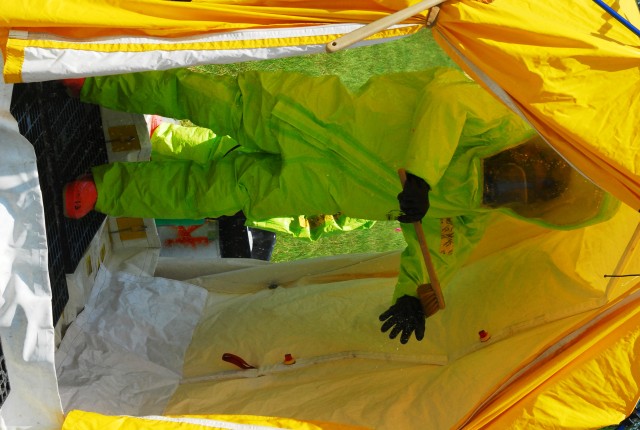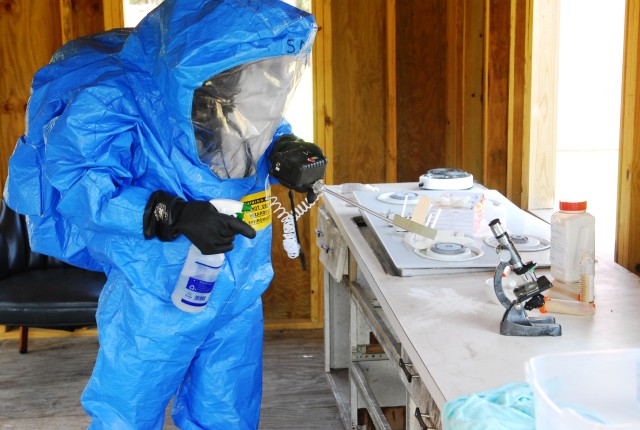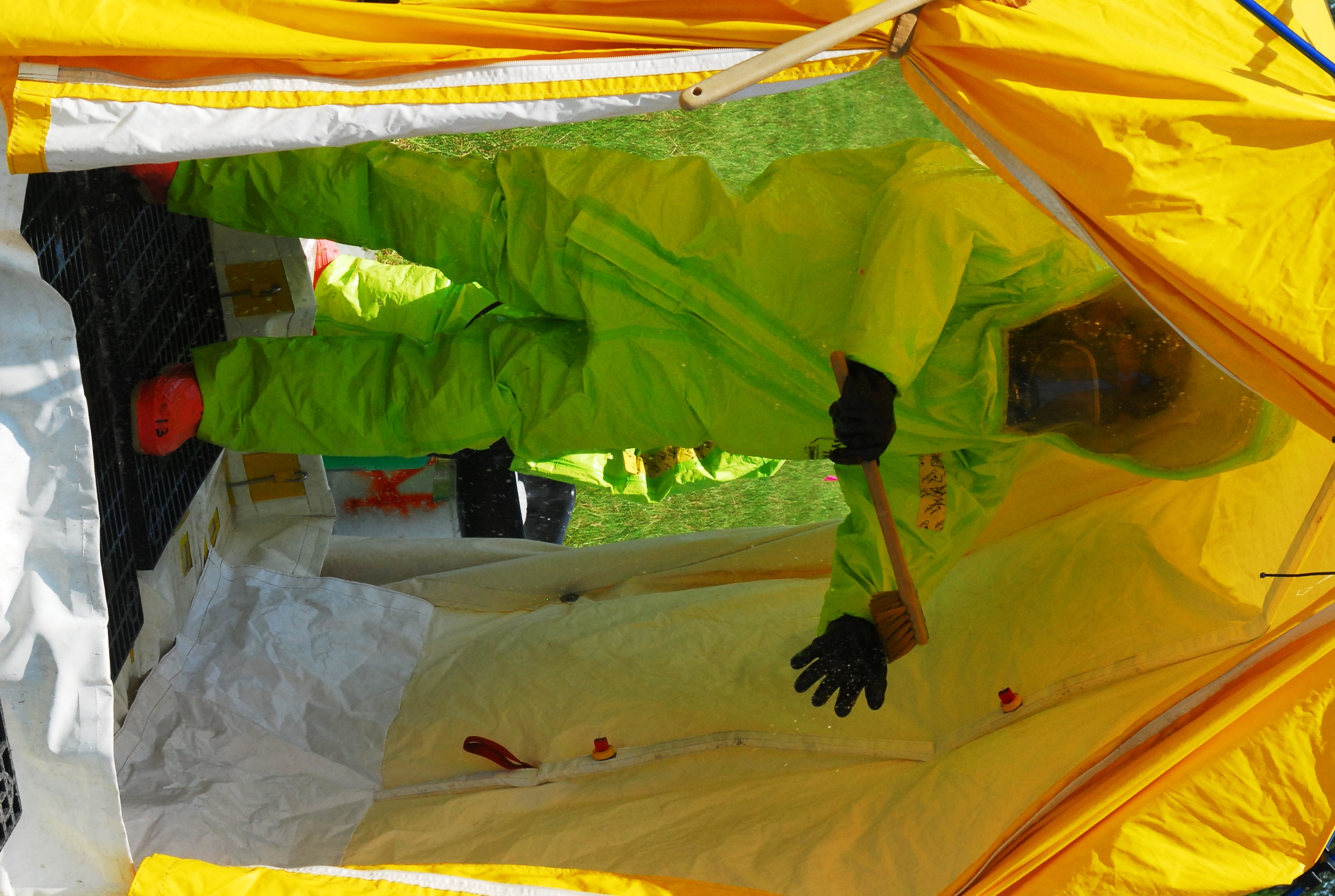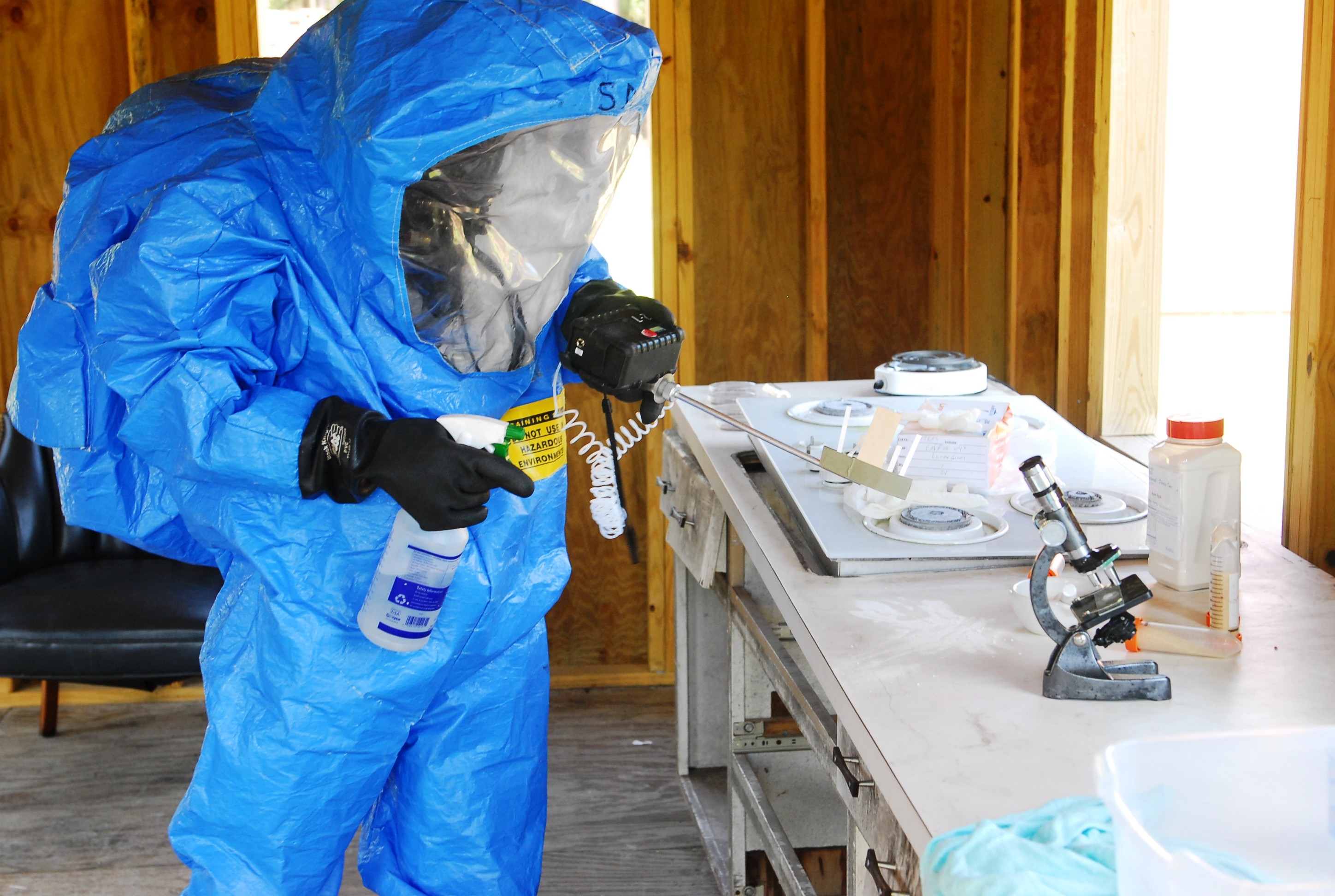FORT STEWART, Ga. </B> Chemical Soldiers from throughout the 3rd Infantry Division participated in Toxic, Industrial, Chemical Protection and Detection Equipment training, Aug. 6, allowing Soldiers to learn how to detect and dispose of Chemical, Biological, Radiological, and Nuclear threats.
Commonly known as TICPDE, Soldiers were provided with hands-on training with specialized equipment. It also entails scenario-based training that allows Task Force Marne Soldiers to practice in what could be real events, said Capt. Casandra Ades, Division CBRN Operations Officer.
"The purpose of the training is to provide tactical and technical expertise to designated TICPDE teams," said the Barstow, Calif., native. "The 3rd Infantry Divisions Brigade Combat Teams all have TICPDE teams that consist of 10 members."
At the completion of the training, Soldiers will receive a hazardous material awareness and operational level certificate.
"This will enable them to not only use this highly specialized equipment, but it also enables them to conduct recon, sampling and decontamination operations just within that 10-man team," Capt. Ades said. "That ten-man team will perform all those operations by themselves for themselves in support of mitigating a HAZMAT incident."
Second Lieutenant Erin Maurer, 4th Brigade Combat Team Chemical Officer, said the training enabled her to learn not only in the classroom.
"I got a lot of hands-on experience and on-the-job experience that I wouldn't have gotten had I just sat in a classroom," 2nd Lt. Maurer said. "This way, I know exactly how to run a decontamination line and an actual chemical mission."
It's key for Soldiers to know how to do this because there is no time for figuring it out when they get down there, said 2nd Lt. Maurer.
"These missions are usually high paced, high intensity, and they are real time sensitive because as the time expands, situations deteriorate and if they have to think about what they are doing then they are not actually accomplishing the mission," 2nd Lt. Maurer said. "So having them get all this now, get familiar with it now, they don't have to try and learn it while they are doing the mission."
For Soldiers not in the chemical field, this training is a new experience.
Corporal Michael Schoenewald, a squad leader in Company D, 3rd Battalion, 15th Infantry Regiment, who only knew the basics of CBRN, said this whole class has been something new to him.
"As an infantryman, I need to be able to identify them, to know hazards associated with them, to be able to protect not only myself but my entire company," Cpl. Schoenewald said. "If we're out on a mission somewhere, and we come across some toxic chemicals (that are) tasteless, colorless and odorless, the only way to tell is if you have had this training."




Social Sharing